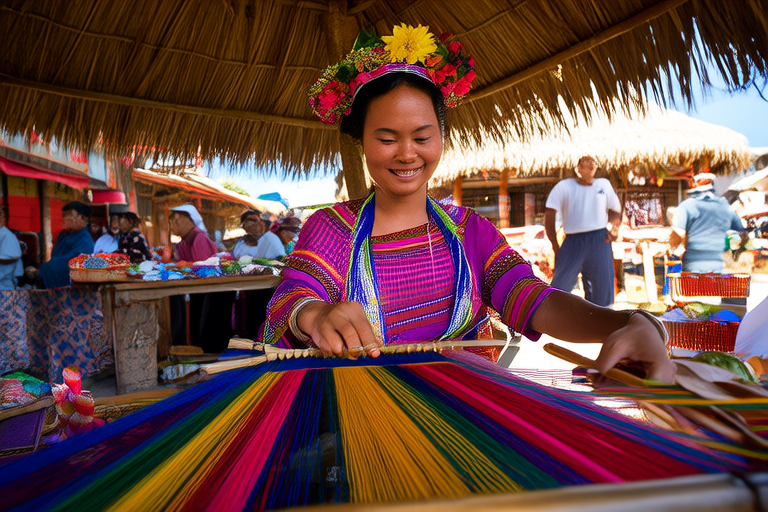Exploring the Rich Tapestry of Cultural Customs Around the Globe

“`html
Exploring the Rich Tapestry of Cultural Customs Around the Globe
Introduction
Cultural diversity is a cornerstone of our interconnected world, offering a kaleidoscope of traditions, beliefs, and practices that enrich our lives. Understanding different cultural customs not only enhances travel experiences but also fosters global empathy and mutual respect. From the serene tea ceremonies of Japan to the vibrant festivals of Brazil, each culture offers unique insights into human experience. This article delves into the rich tapestry of cultural customs across Asia, Europe, Africa, The Americas, and Oceania, highlighting the values, histories, and identities embedded within these practices.
Asia: A World of Traditions
Asia, the largest and most populous continent, is home to a vast array of cultural practices. In Japan, the tea ceremony is a revered ritual that emphasizes harmony, respect, purity, and tranquility. This practice reflects the deep appreciation for nature and the pursuit of spiritual balance. Similarly, in India, the festival of Diwali celebrates the victory of light over darkness, symbolizing hope and renewal. The Indian tradition of arranging marriages through arranged unions underscores the importance of family and community. Meanwhile, in China, the Lunar New Year marks the beginning of spring, with families coming together to share meals, exchange gifts, and participate in dragon and lion dances.
These customs are deeply rooted in the history and values of each culture, reflecting their unique perspectives on life, society, and the natural world. By embracing these traditions, travelers can gain a deeper understanding of the people and places they visit.
Europe: Timeless Heritage and Modern Vibrancy
Europe, known for its rich history and cultural diversity, offers a fascinating blend of ancient traditions and modern vibrancy. In Spain, the running of the bulls during the San Fermín festival in Pamplona is a thrilling spectacle that draws thousands of spectators each year. This event showcases the region’s passion for celebration and adventure. Italy, famous for its artistic heritage, celebrates the Palio di Siena, a horse race that dates back to the Middle Ages. The event is steeped in local pride and community spirit. In Greece, the Panathenaic Festival honors Athena, the goddess of wisdom, with parades, music, and dance. These cultural events not only entertain but also educate visitors about the region’s history and values.
Historical landmarks such as the Colosseum in Rome, the Acropolis in Athens, and the Sagrada Familia in Barcelona serve as testaments to the enduring legacy of European civilization. Additionally, everyday customs like afternoon coffee breaks in Italy and tapas in Spain provide opportunities for locals and tourists alike to engage in meaningful social interactions.
Africa: A Continent of Vibrant Cultures
Africa, often referred to as the cradle of humanity, boasts a rich cultural heritage that spans millennia. In Morocco, the Gnawa music festival brings together musicians and dancers from across the country to celebrate the spiritual power of music. This event highlights the region’s deep connection to ancestral roots and the healing properties of sound. In Kenya, the Maasai Mara is home to the annual wildebeest migration, a natural wonder that draws visitors from around the world. The Maasai people, known for their distinctive red clothing and intricate beadwork, maintain a close relationship with the land and its wildlife.
In South Africa, the Cape Town Carnival features colorful floats, live performances, and traditional dances, showcasing the country’s diverse cultural influences. These ceremonies, art forms, and social norms not only entertain but also educate visitors about the continent’s rich cultural heritage.
The Americas: A Melting Pot of Traditions
The Americas, comprising North and South America, offer a diverse range of cultural customs influenced by indigenous, colonial, and modern traditions. In Mexico, Dia de los Muertos (Day of the Dead) is a vibrant celebration honoring deceased loved ones. Families build altars adorned with flowers, food, and photos, creating a joyful and respectful tribute. In Brazil, the Carnaval in Rio de Janeiro is a world-renowned festival of music, dance, and pageantry. Samba schools compete in elaborate parades, showcasing their creativity and talent. In Canada, the Quebec Winter Carnival celebrates the arrival of winter with ice sculptures, snow slides, and traditional French-Canadian cuisine.
Indigenous traditions, such as the potlatch in North America and the quipu in Peru, highlight the importance of storytelling and community in preserving cultural knowledge. These customs provide valuable insights into the complex histories and ongoing legacies of native peoples.
Oceania: Preserving Ancient Traditions
Oceania, encompassing Australia, New Zealand, and the Pacific Islands, is renowned for its unique cultural practices that have been passed down through generations. In Australia, the Dreamtime stories of Aboriginal and Torres Strait Islander peoples tell of creation and ancestral beings, providing a deep connection to the land. Traditional dances, such as the corroboree, celebrate this bond. In New Zealand, the haka, a ceremonial war dance performed by the Māori, demonstrates strength, unity, and respect. The Māori language, te reo Māori, continues to thrive, with efforts to preserve and promote it in schools and communities.
Polynesian islands, such as Tahiti and Hawaii, are known for their hula dances, which tell stories of love, nature, and spirituality. These dances, along with other cultural practices, reflect the deep respect for the environment and the interconnectedness of all living things.
Conclusion
Understanding and respecting cultural differences is essential for fostering global empathy and promoting peaceful coexistence. By embracing new experiences and deepening our understanding of global cultures, we can contribute to a more harmonious and inclusive world. Whether it’s participating in a tea ceremony in Japan, dancing at Carnaval in Brazil, or learning about indigenous traditions in the Americas, each cultural custom offers valuable lessons about the human experience. Let us continue to explore and appreciate the rich tapestry of cultural customs around the globe, recognizing the role of cultural exchange in promoting peace and unity worldwide.
“`